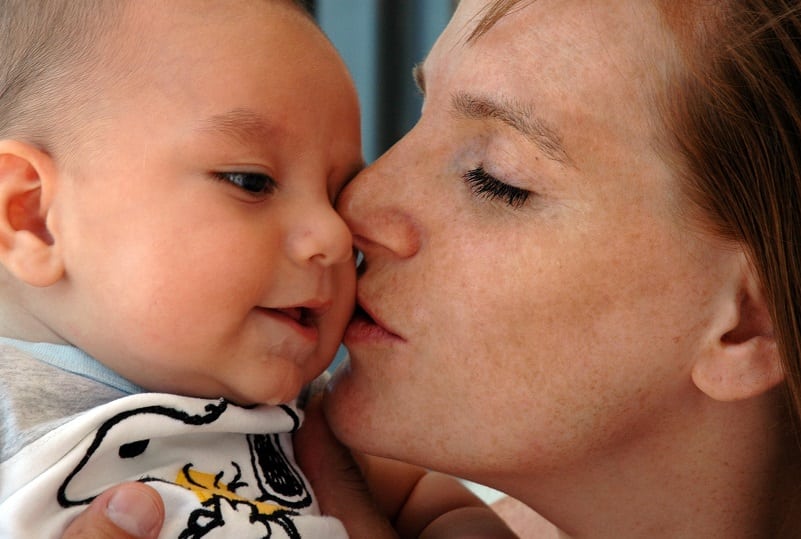My baby nephew came to visit when he was just a few months old. I missed him as soon as the door closed when he left. He smelled so good. With his head on my shoulder and my face next to that sweet head, I couldn’t get enough of that smell. I wanted to smile and say, “You aren’t always going to smell this good. Wear it proudly while it lasts.” A friend, mother of two sons, once averred that few things smell worse than a nine-year-old boy. (That wasn’t my experience. And as our pediatrician once declared, “Little boys were made of snips and snails and puppy dog tails? What exactly is a snip? The children I know are nearly 100% puppy dog tails, both boys and girls.”)

The sense of smell is the gateway to the sense of taste, which the gateway to nourishment. Babies smell good so we can learn—and re-learn over and over—how nourishing them nourishes and replenishes ourselves, even as the endless demands of caring for a newborn can deplete us to depths previously unknown.
Then along come our children with autism and what we call sensory processing disorder—which is “the real world” to them. Smells we consider ordinary and benign, and smells we don’t even notice or can’t detect are invasive and threatening to our kids. What can be learned from that? What if we couldn’t smell that heavenly baby smell through the pee, poop and spit-up smells? All we would be smelling is waste—and that’s a waste.
That new baby smell is the smell of new life. It may be part of what prompted the poet Carl Sandburg to write, “A baby is God’s opinion that the world should go on.”
So perhaps there’s something very practical about encouraging our kids to tune in to what their nose knows, to follow their neurology to “smell differently”. To find their own kind of beauty in smells we may not have noticed, and to guide them, by following their lead, to finding those smells that nourish life.
Photo: Pixabay

Leave A Comment